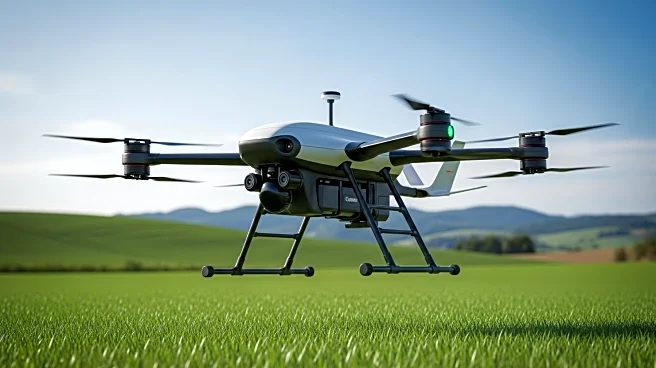What is the story about?
What's Happening?
The Indian Council of Agricultural Research - Agricultural Technology Application Research Institute (ICAR-ATARI) has initiated its annual zonal workshop at Vellore Institute of Technology (VIT). The event, spanning three days, aims to modernize Krishi Vigyan Kendras (KVKs) to foster a transformative agricultural future. Participants include scientists, extension professionals, administrators, and stakeholders from Andhra Pradesh, Telangana, Tamil Nadu, and Puducherry. The workshop's theme emphasizes not only upgrading physical infrastructure but also enhancing the knowledge, digital, and institutional capacities of KVKs. The goal is to position KVKs as innovation accelerators and delivery platforms that connect farmers with science, technology, and markets. Zone X, which comprises 72 KVKs, is actively involved in this initiative, with plans to establish over 100 new KVKs. The workshop will also focus on district-level action plans, identifying technologies suitable for regional adoption.
Why It's Important?
The modernization of KVKs is crucial for advancing agricultural practices and improving farmer access to scientific and technological resources. By enhancing the capabilities of KVKs, the initiative aims to accelerate innovation and facilitate the delivery of advanced agricultural solutions. This transformation is expected to benefit farmers by providing them with better tools and knowledge to increase productivity and sustainability. The workshop's focus on regional action plans ensures that the strategies developed are tailored to the specific needs and conditions of each area, potentially leading to more effective implementation and greater impact on local agriculture.
What's Next?
The workshop will continue to explore and finalize district-level action plans, focusing on the adoption of technologies best suited for each region. Stakeholders will debate and discuss these plans to ensure they align with the overarching goal of modernizing KVKs. The establishment of over 100 new KVKs is anticipated, which will further expand the reach and impact of this initiative. As these plans are implemented, ongoing evaluation and adaptation will be necessary to address emerging challenges and opportunities in the agricultural sector.
Beyond the Headlines
The modernization of KVKs could lead to significant shifts in agricultural practices, potentially influencing policy decisions and funding allocations. By positioning KVKs as innovation hubs, the initiative may also encourage greater collaboration between farmers, researchers, and technology developers, fostering a more integrated approach to agricultural development. This could have long-term implications for food security, rural development, and economic growth in the regions involved.
















